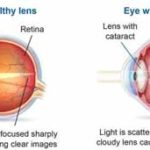 As we grow older, we tend to lose bone. By losing, we imply a decline in the quality and density of the bone. Osteoporosis is the technical term given to such acute condition, in which the bones become thin and weak. Such bones are susceptible to breakage. Fractures can become frequent, paving way for disability.
As we grow older, we tend to lose bone. By losing, we imply a decline in the quality and density of the bone. Osteoporosis is the technical term given to such acute condition, in which the bones become thin and weak. Such bones are susceptible to breakage. Fractures can become frequent, paving way for disability.
Though osteoporosis is often linked with old age, it is not a natural characteristic of ageing. Thus, there are a lot that we can do to make our bones future proof:
1. A healthy diet
The significance of balanced stable diet can never be overstated. Consuming the right amount of carbohydrates, protein, fats and vitamins can do wonders to our health, whose benefits we shall reap when our age declines.
2. The critical nutrients
A. Calcium
Calcium is one of the cornerstone nutrients for bone development. Researchers recommend 1g of calcium for most adults while men beyond 70 and women after menopause are advised 1.2g pee day. Green leafy vegetables, broccoli, milk and other dairy products. A balanced diet containing 2-3 serving of milk products per day, usually ensures the benchmark. For people who cannot keep up with such a diet, physicians may be consulted and supplements may be administered.
B. Vitamin D
The main function of vitamin D is to help the body in absorbing calcium from the food. The sun is the natural source of vitamin D. Spinach, collards, soyabean and white beans should also be a part of one’s diet. For non-veg lovers, fishes like sardines, salmon and perch should quench the body need for vitamin D.
C. Vitamin K and Potassium
These two nutrients aren’t necessarily the core elements, yet they have major roles to play. While vitamin K has varied effects depending upon heredity and body composition of an individual, potassium is known to neutralize the acid which remove calcium from the bones.
Boost up your vitamin K intake with foods like kale, broccoli, spinach and yoghurt. Sweet potatoes, white potatoes and bananas ooze potassium.
3. Cut down on caffeine
Caffeine has some health benefits but it is also known to inhibit the body’s ability in absorbing calcium. Studies have shown that people who consumed more than two cups of coffee showed a decline in calcium absorption. Since caffeine is a part of our modern staple diet, it should be carefully administered with other calcium rich foods.
4. Exercise
A sedentary lifestyle increases the chances of osteoporosis. Now we are not asking you to become an athlete overnight, but taking up body movements which increase bone density is indubitably advisable. Weight bearing exercises such as walking, running, jumping, stair climbing and skiing are known to keep the bone strongest.
5. Less booze, No smokes
Alcohol consumptions within permissible limits (one drink per day for women and two drinks for men) does no harm, however alcohol abuse causes bone loss.
Likewise, cigarettes are known to hamper calcium intake by the body, decreasing bone mass and bone density. STAY AWAY FROM THIS IMPOSTER.





